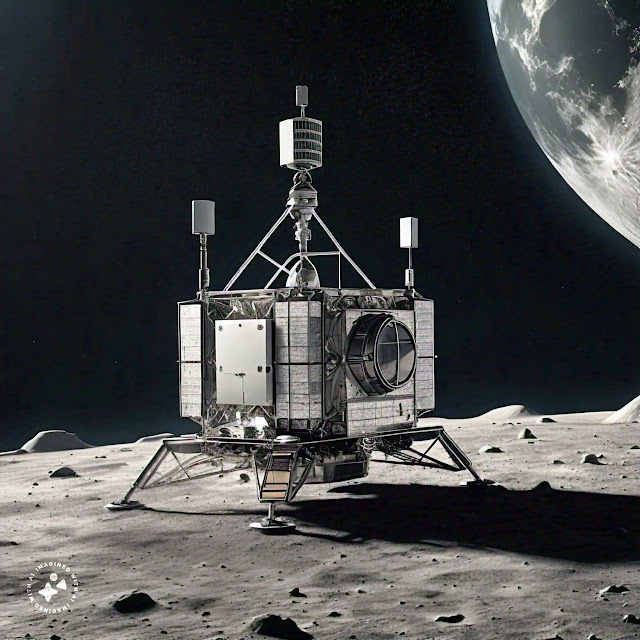Pakistan is taking its first leap into lunar exploration with the launch of its inaugural satellite, 'iCube Qamar', in collaboration with China. This historic moment marks a significant milestone in Pakistan's journey into space, reflecting the nation's commitment to technological advancement and scientific exploration.
 |
| Pakistan takes a giant leap in space exploration! Our iCube Qamar satellite is ready to embark on a historic lunar mission in partnership with China. #LunarMission #PakistanInSpace #iCubeQamar |
 |
| Exploring new frontiers! Pakistan's iCube Qamar satellite is on a mission to the Moon, marking a significant milestone in our space program. #PakistanAchieves #LunarExploration #iCubeQamar |
The project, spearheaded by the Institute of Space Technology (IST) in collaboration with SPARCO, saw the involvement of students from various disciplines, underscoring the collaborative nature of this groundbreaking initiative.
 |
| Reaching for the stars! Pakistan's iCube Qamar satellite is soaring into the lunar orbit, a testament to our nation's ingenuity and scientific prowess. #PakistanInSpace #LunarOrbit #iCubeQamar |
Initiated in 2022 through an opportunity provided by the Asia-Pacific Space Corporation Organization (APSCO), 'iCube Qamar' represents Pakistan's entry into a select group of nations that have sent satellites to the lunar orbit. This partnership with China underscores the importance of international collaboration in advancing space exploration.
 |
| Pakistan's iCube Qamar satellite: Bridging the gap between Earth and Moon! This historic lunar mission marks a new chapter in our space program. #LunarMission #PakistanAchieves #iCubeQamar |
The satellite, equipped with two optical cameras, aims to capture detailed images of the lunar surface as part of China's Chang'e 6 mission. Additionally, it features essential components such as a 12-volt battery, solar panels, and communication systems, enabling data transfer and control mechanisms.
Pakistan's First Lunar Mission: iCube Qamar
In a landmark collaboration with China, Pakistan's inaugural lunar satellite, iCube Qamar, embarks on its journey to the moon from China's Henan Space Launch Site.
Prime Minister's Commendation
Prime Minister Shehbaz Sharif extends his congratulations to the nation and scientists, hailing the iCube Qamar satellite as Pakistan's initial stride into the realm of space exploration.
The Genesis of the Mission
Delve into the origins of the project, tracing its inception from a proposal by the Institute of Space Technology (IST) to the Asia-Pacific Space Corporation Organization (APSCO), culminating in approval and subsequent collaboration with Sparco, a Pakistani space research organization.
Satellite Design and Functionality
Unveil the intricacies of iCube Qamar's design, equipped with two optical cameras for lunar surface imaging, and its integration with China's Chang'e 6 mission, tasked with lunar sample collection.
Significance for Pakistan
Explore the significance of the iCube Qamar mission for Pakistan, elucidating its implications for scientific research, technological advancement, educational initiatives, and national pride.
Cube Satellite Technology
Dive into the world of CubeSat technology, elucidating its cost-effectiveness and utility for countries like Pakistan, fostering collaboration with China and propelling advancements in space science.
Partnership Dynamics
Examine the dynamics of the Pakistan-China partnership in space exploration, highlighting the significance of Chinese support in mitigating the financial burden of satellite launches for Pakistan.
Addressing Pakistan's Space Endeavors
Reflect on Pakistan's historical contributions to space exploration and address pertinent questions regarding its position in the global space race, juxtaposed against regional counterparts like India.
By weaving these headings into your blog post, you can provide readers with a structured narrative that navigates through the intricacies of Pakistan's maiden lunar mission, its implications, and the broader context of its space endeavors.
No comments:
Post a Comment